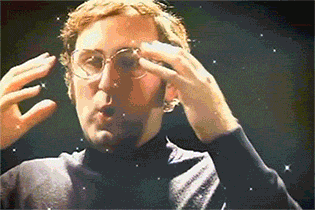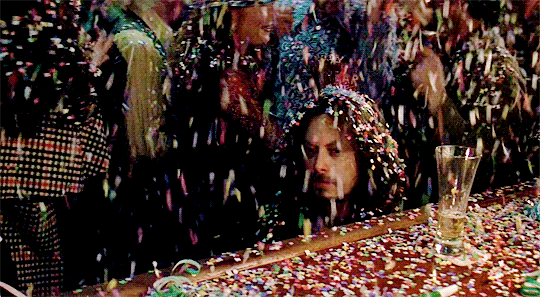That’s right. I said it.
The respected tradition that’s been passed down from generation to generation of putting on airs for one night every decade is going down the tubes.
And it’s all thanks to millennials, mostly.
Social media, especially Facebook, has played a major role in high school class reunions’ downfall. Here’s why:
The entire point of a high school reunion, or at least the entire point is intended to be, that you go to catch up with old friends and see what everybody has been doing with their lives, right?
Okay, so what if I told you… you’re able to do that right from your very own home and you won’t have to put on pants to go out and talk to people?

“Blasphemy!” you exclaim, sitting in your underwear, reading this.
But if I had to take an educated guess, you probably have Facebook, Twitter, Instagram or some other form of social media open in another tab while you’re reading this. It’s either that or porn.
Why is that significant? No, not the porn, you bird-brained fool. Close out of that for two minutes and continue reading this.
What I meant to say is, why is the fact that you have social media open significant? Because, my dear reader, you probably were or are about to do the exact thing that is ruining high school reunions.
What is that thing? I’ll give you a hint: it’s one word, two syllables, starts with “stalk,” ends with “-ing.”
That’s correct. Stalking. More specifically, cyber-stalking.
Admit it. We’re all guilty of it. Even if we’re not consciously aware we’re doing it.
You see someone’s post, you click on their profile just to see what they’ve been up to lately, and before you know it, you know what they had for breakfast on August 27, 2014.
I can’t go knocking door to door and shout at people to admit they have similar online behavior as I described in the paragraph above. I think I’d get a pleasant, handcuffed ride down to the Grey Bar Hotel before I obtained any substantial evidence. I can, however, make some more reasonable assumptions based off my experiences with popular culture and social media.
I don’t have a ton of physical data on this, but I think it’s safe to say that a resounding majority of active social media users are millennials. Meaning it is millennials (Fact No. 7 on the link) who most actively produce and interact with content on social media.
That isn’t to say that other generations don’t either (especially considering Facebook is the go-to social media realm for older generations). But, spanning across all social media, my bet is that millennials are leading the way. After all, millennials created most social media outlets.
Something that millennials (and I’m sure other generations, too) have gotten really good at is cyber-stalking. Shows like MTV’s “Catfish” are just one avenue in which this topic can go down. The show centers around two guys who pretty much stalk social media profiles of people who a potential romantic partner isn’t sure if they appear to be the person they claim to be on their social media profiles.
Even the most recent presidential election and current presidency have people digging up President Trump’s tweets from several years ago in hopes of exploiting hypocrisy, among other things.
It’s safe to say that social media is used by many, either consciously or subconsciously, as a tool to get substantial information about people. For Zuckerberg’s sake, Facebook and other companies have even been rumored to share user information to third parties. That’s no secret.
But what does all this have to do with ruining high school reunions?
Remember the whole point of them? You go to catch up with old friends and see what everybody has been doing with their lives, right?
Now, you can do this all from home.
Some high school classes even have their own Facebook group pages, making it easier to find those you aren’t already Facebook friends with, or just to peruse through posts to the page’s wall.
Of course, there’s always some exceptions. Some people may not have any social media. Others may have very limited public information on their profiles to display.
Never fear, fellow cyber-stalkers.
According to the Pew Research Center in 2014, “half of Internet users who do not use Facebook themselves live with someone who does.”
And it’s safe to say even more non-Facebook users at least know someone who is a user. What does that mean? Even if you don’t have Facebook, it probably isn’t too much trouble to get a friend to look up that one person you went to high school with on Facebook. Perhaps your real-life friend is already Facebook friends with the person you’re trying to learn more about.
In the age of social media, information is often made public and easily attainable. It’s more than likely that you’re just a few clicks away from finding out everything you wanted to know about Taylor from high school that would’ve ended up being a 10-minute conversation in real life.
So is there still really a point to high school class reunions?
The short answer is no.
The longer, and perhaps more feasible answer for some, is yes. Because although the true meaning of reunions gets lost in the profile and group pages of social media, for some, that physical act of seeing people again and conversing in real life is still valuable.
Dressing in elegant clothing, renting a Lambo and hiring a model to act as your date for one night is still do-able. Just make sure your information on social media is set to private, otherwise your former classmates may wonder how you could afford all that nice stuff while working at McDonald’s for minimum wage and paying child support for three kids you had with your ex.
Happy reunion!
